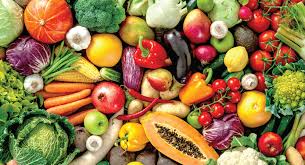As we move into the colder months of autumn and winter our elderly relatives are especially vulnerable to all kinds of winter ailments and so the best way to help them to maintain their best health through colder weather is by turning to warming and nutritious foods.
Now is the time to get together with your elderly relative’s home care services provider to plan just how to keep them healthy and happy over the winter with nourishing meal choices.
Soft Food is Easier to Eat
Colder temperatures usually means that thoughts turn to pies, stews or roast dinners and whilst these are good choices you have to take into account whether your elderly relative is able to eat stodgy food. It may be better for them to consider softer foods which are easier to chew and digest but are still full of essential nutrients and are still filling and satisfying.
A hearty breakfast of oatmeal porridge made with full fat milk and with soft seasonal fruit like blueberries, cranberries or pears stirred in provides a slow-release of energy throughout the day. Warming meaty stews, pasta meals and fish pies are comforting and filling and, for those unable to eat large amounts of food, these can be made in advance and divided into acceptable portions.
It is important to ensure that elderly people eat little and often throughout the day if they can’t manage large meals; a bowl of soup, a piece of fresh fruit and even a slice of cake – the important thing is to make sure they eat something and eat regularly.
Vitamins and Minerals for Optimum Health
Vitamin C plays an important part in keeping the immune system functioning properly. Good sources of vitamin C include oranges, or orange juice, sweet potatoes, tomatoes and red peppers.
Zinc helps to ward off colds and flu. Oysters, spinach, pumpkin and flax seeds, beef and kidney beans are all easily sourced and easy to work into a daily menu.
Iron is essential for the production of oxygen-rich red blood cells. Liver, red meat, nuts and fortified breakfast cereals are all good sources of iron. If the elderly person is finding it difficult to eat enough it could be an idea to provide iron supplements. Always discuss with a health professional if you plan to give any supplements in case these could clash with any medication.
Vitamin B12 is an important source of energy as it helps to reduce fatigue and it also plays a part in keeping the immune system healthy. Fish such as salmon and cod as well as chicken, eggs and some dairy products all contain vitamin B12. Vegetarians and vegans may be unable to get enough B12 from their diet so may benefit from a supplement but again be sure to clear it with their doctor first.
Calcium is essential for healthy bones and teeth so ensure milky drinks and cheese form a regular part of the diet.
Finally, regular exercise and good sleep help to maintain good health and where in-home care is available this is easy to organise.
